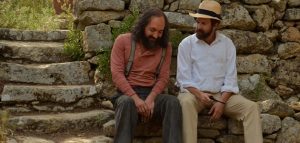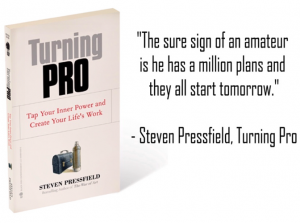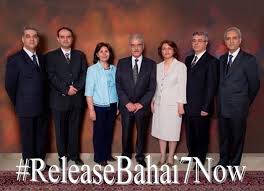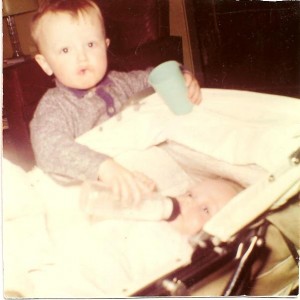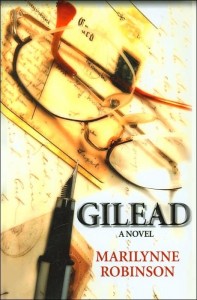Party at Farm Boy! It’s my party, and I’ll write if I want to². (Behold: the second obscure pop-musical reference. Didja get the first¹ one?)
I don’t always write when I want to. I am not, and have never been, blessed with my bride’s Do It NOW! gene, at least when it comes to things requiring effort. TV, and fridge doors (see: opening of), and thinking about sports, and reading whatever falls under my eyes – these things come as naturally as does scrolling through a Twitter feed long after my original sharing-impulse or micro-news hunger has expired. Yes: a fresh entrant to this category of Indomitably Easy Activities.)
But I am writing now.
I sit upstairs at a high-end supermarket called Farm Boy. It’s across the street from Tom the Mechanic, where my wheels are getting readied for summer. Breakfast has merged into lunch. I like buying groceries and eating them at the store. There’s even a chance to be healthy. (-er)
(And yes, music historians, the title was a pop lyric, too. I now have Spotify³ on my phone. Most of my downloads are decades old, but surely “To Pimp a Butterfly” will join my invisible milk-crate library.)
It’s my mother’s birthday, and I’ll cry if I want to. I don’t think I will, though. She’s been gone 10 years now, and I’m easy about it. I will admit, though: when I went by the asparagus downstairs in the produce department, I pronounced it “Ass-per-AG-us” in my head, because that’s what Enid just about unfailingly called it. She was never a teacher – heck, never went to university, why would she? She was female! – but reliably pronounced words in such a way as to make their spelling graspable. “Skizzers” for scissors, “fatty-goo” for fatigue, and so on and on. Whether this was with her five kids’ spelling tests in mind – we all aced ‘em, always – or just a mock-fashionable bit of extreme word-nerdery, I couldn’t say. Ennyhoo, as she also serially concluded: Hi, Mum. You had an effect.
Mum was a Christian, less nervous about death than about tidying up before Mrs. Adams, our housekeeper, got to our place for a weekly clean. She was ecumenical before it was cool, absolutely friendly with those Presbyterians and United Churchers, and dismissive of attempts by an earnest young Baptist pastor to condemn her weekly bridge games as the devil’s playground. When one of her sons was allegedly barred access to the gates of heaven because of consorting with Baha’is, she sniffed, “Well, it won’t be much of a heaven for me if my kids can’t go there.” She hated confrontation, but as I recall it, her comment snuffed that pseudo-theological debate right quick.
Maybe my mother would have liked Benjamin Sledge. I don’t know Mr. Sledge, but in the way of Internet Things I read a blog post of his on a stealth-Christian site called Heart Support. In the article, “Let’s Stop Pretending Christianity is Actually Relevant, Okay?”, Sledge jumps from the Vans Warped Tour (a travelling rock music fest with faithful underpinnings) to 2nd-century Rome, and then back to a moral landscape – modern America – that obviously troubles him. What troubles him most? “Christians”, mainly, both the mainstream don’t give it a second thought kind, on one hand, and the minority have you accepted Jesus Christ as your Lord and Saviour and hated gays and abortionists enough? brand. It’s unclear which type is the supreme irritant, but he “welcomes”, actually seems to long for, the growing irrelevance of the Christian faith in modern America. He prefers the heroic, supremely loving and sacrificial expressions of the Gospel that he finds in early Roman history, the reason Christianity originally achieved a civilizing groundswell of popularity in the centuries following the life of Jesus. Ennyhoo: you can read the piece yourself. It’s quite refreshing, especially if you reflexively shudder at the excesses of faith-gone-political. It’s not that, not at all. It gives Christianity a good name, actually.
I’m writing in a Farm Boy supermarket, and yes, it’s been awhile since I got anything Out There. And Mr. Sledge has been pleasantly irritating me: a small snippet of the “Relevant” piece has been a brain-worm, burrowing about because of its significance and its craftiness. So thoughtful and cleverly written it was, in fact, that I Actually Wrote It Down in my sorely neglected paper’n’pen journal, as well as a handy just-in-case-I-get-the-typing-itch Word doc. Sledge refers to a simple, under-acknowledged bit of cultural oddness: people hitting other humans over the head with a book they consider Holy, the Bible. Who DOES that? he basically asks. And what in the world do they think they’re DOING?
“It’s a strange practice to ask people who don’t hold the same beliefs as you to conform to your morals because you quoted a book they don’t read.”
Not bad, eh? One thing I’ve loved about the Baha’is is that they bend over frontwards and backwards to avoid using sacred writings as hammers. Another story.
It’s good to write. Sledge’s article did come my way via Twitter – not that there’s anything wrong with that — but reasoned faith and my mother’s ever-living example (for example), are far less momentary. And all these things — along with old tunes, and squeaky-cheese curds ‘n’ apples for lunch, and sunshine on a day of swapping out the snow tires — got stirred into a bloggy stew. I feel good! Like I knew that I would.₄
And if you’re a long-time reader here, thanks for sticking around. I know this could have gone in the He Said/ She Said section, but as I said:
It’s my party.
¹ “Memories Can’t Wait”, by Talking Heads, from their 1979 album Fear of Music. Spooky good. I like old music, but this doesn’t even feel dated.
² “It’s My Party”. It’s the 1963 Lesley Gore version that I hear, one of my big sisters’ 45s. Quincy Jones’s first big hit, the writer learned!
³ Spotify is tremendous, but I still haven’t given away my vinyl yet, even if it’s no longer in milk crates that I can hunch over as I read liner notes and enjoy album art. I miss the bigness and tangibility of LPs, not gonna lie.
₄ James Brown, of course! 1964. The horn break — da-dum da-dum da-dum DA — was included on the imaginary spoken-and-sung-word version of this post. First heard this on the 8-track player of my high school coach’s faux-wood-sided beat-up station wagon. That was a trip, Donny.


